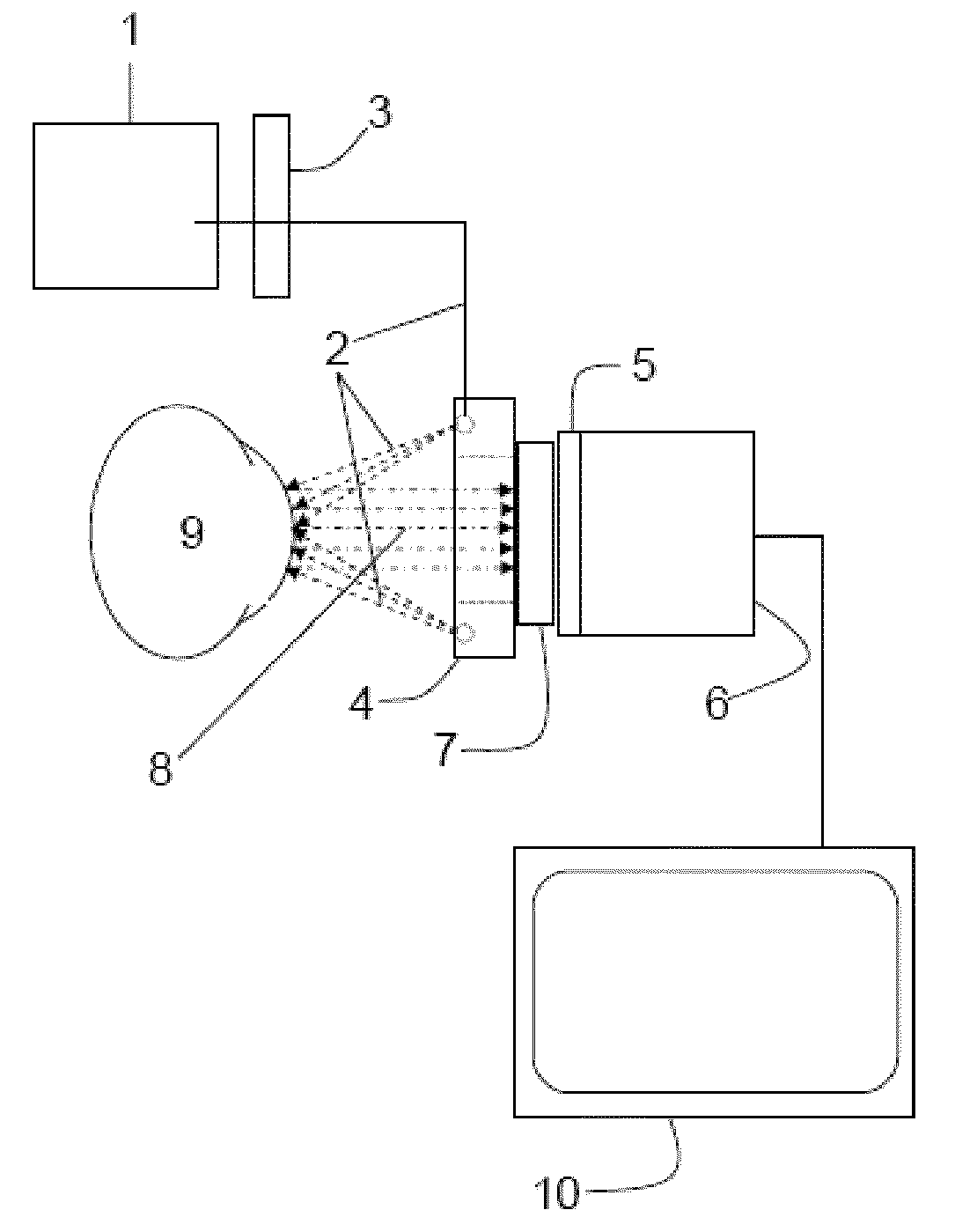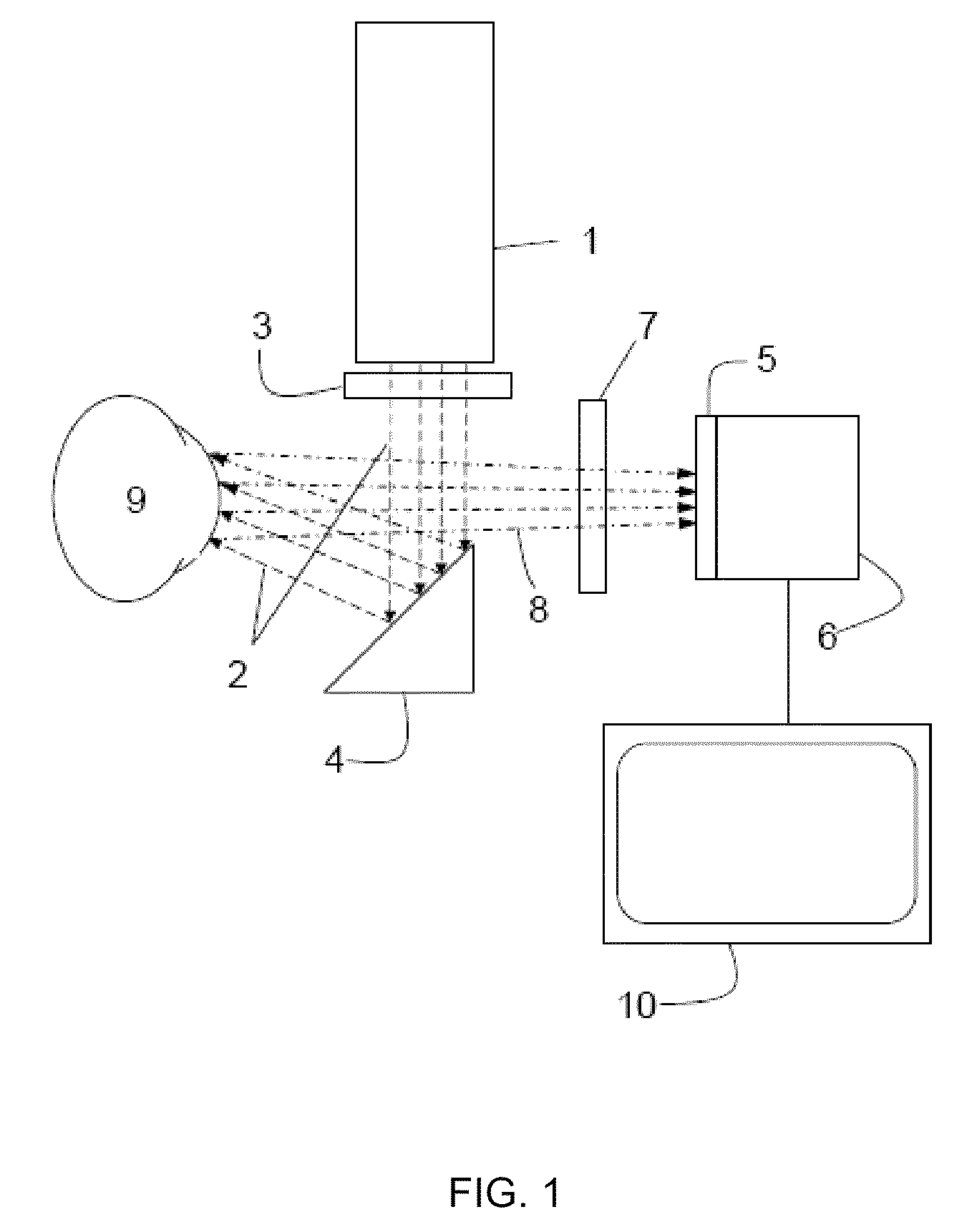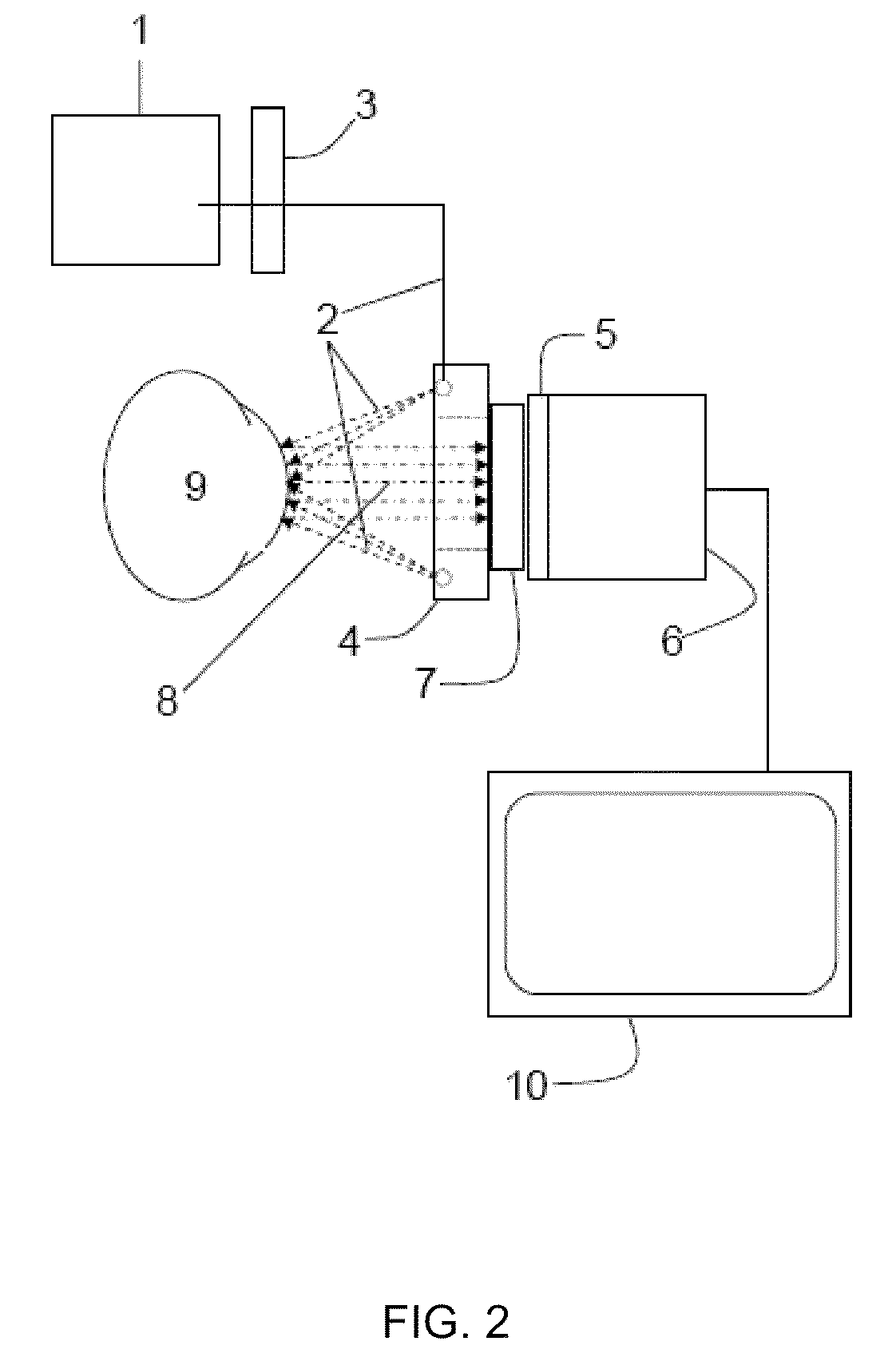Method for ocular surface imaging
a technology of ocular surface and image, applied in the field of ocular surface defects detection apparatus and methods, can solve the problems of invariability and reliability of individual physicians' assessment, difficulty in quantitative image analysis of ocular surface images, and invariably interfering with image analysis and feature detection
- Summary
- Abstract
- Description
- Claims
- Application Information
AI Technical Summary
Benefits of technology
Problems solved by technology
Method used
Image
Examples
example 1
Spectral Filtering Removes Purkinje Images of the Illumination Source from Images of Specular Surfaces
[0056]The ability to spectrally remove the specular or Purkinje image from ocular surface fluorescence images was demonstrated with an artificial cornea prepared from a hard contact lens. For this a hard contact lens made of polymethylmethacrylate was coated with green fluorescent beads, (Bangs Laboratories, Inc, Fishers, Ind.) to simulate stained spots on a curve corneal surface. The spectral properties of these beads were similar to fluorescein. The artificial cornea was position in front of a Nikon digital single lens reflex camera and illuminated with a fiber optic ring light mounted to the lens of the camera. The fiber optic ring illuminator was configured such that band pass filters could be used to spectrally define the light emanating from the ring. Images were collected through either a green bandpass filter optimized for fluorescein emission wavelengths, (532+ / −45 nm) or n...
example 2
Spectral Filtering Removes Purkinje Images of the Illumination Source from Images of the Ocular Surface
[0058]A severe dry eye patient and a non-dry eye patient were subjected to corneal staining with 5 μL of 2% sodium fluorescein for 3 minutes, followed by a saline wash (Unisol 4 Saline Solution, Alcon Laboratories, Inc., Fort Worth, Tex.). The stained eyes were imaged with a Haag-Streit BX-900 slit lamp. The Haag-Streit slit lamp consisted of a stereo biomicroscope, a combination flash lamp and modeling lamp for illuminating the eye and a Canon 40D digital camera and computer for image capture. The slit lamp was modified by the addition of a fluorescein excitation bandpass filter to the flash lamp output and the insertion of a fluorescein emission filter in the light path to the between the eye and the camera. The fluorescein excitation filter had a bandpass (transmission>90%) of 483+ / −32 nm and the emission filter had a bandpass of 536+ / −40 nm. The out-of-band optical densities of...
example 3
Fourier Analysis of Ocular Surface Defects of a Dry Eye Patient
[0060]The effect of the Fourier bandpass filtering process was illustrated in FIG. 5 and FIG. 6. The fluorescein corneal image in FIG. 5A was obtained with a camera based imaging system equipped with fluorescein spectral band pass filters as described above. The two dimensional Fourier transform of the image in FIG. 5A was then calculated using an unpadded fast Fourier transform algorithm found in most image analysis software. The transform was then multiplied by the Fourier transform of a low pass Gaussian filter and the inverse transform of the product was calculated to produce the image in FIG. 5B. As expected, the Fourier processing removed the low background brightness of the conjunctiva and background stain leading to an enhancement of the small speckled stained structures in the cornea (compare image in FIG. 5A and FIG. 5B).
[0061]The utility of the imaging method and the Fourier bandpass filtering process in measu...
PUM
 Login to View More
Login to View More Abstract
Description
Claims
Application Information
 Login to View More
Login to View More - R&D
- Intellectual Property
- Life Sciences
- Materials
- Tech Scout
- Unparalleled Data Quality
- Higher Quality Content
- 60% Fewer Hallucinations
Browse by: Latest US Patents, China's latest patents, Technical Efficacy Thesaurus, Application Domain, Technology Topic, Popular Technical Reports.
© 2025 PatSnap. All rights reserved.Legal|Privacy policy|Modern Slavery Act Transparency Statement|Sitemap|About US| Contact US: help@patsnap.com



